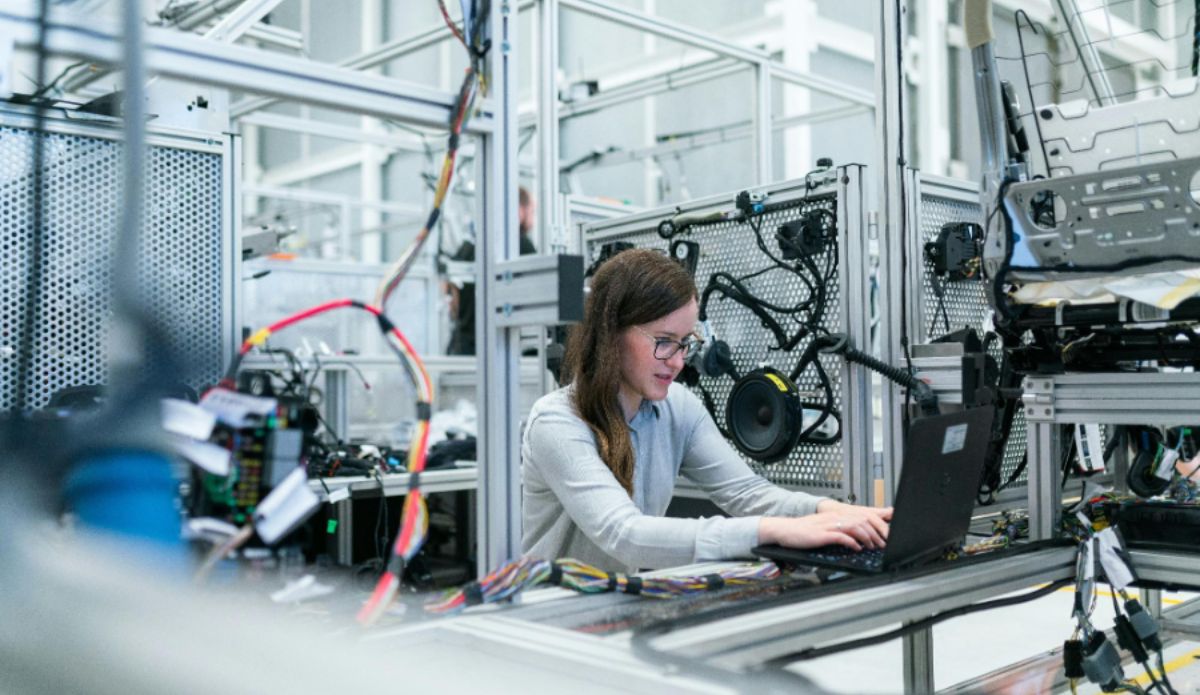As our world becomes increasingly plugged in, the quest for longer-lasting, more efficient batteries has never been more critical. From powering our smartphones to keeping electric vehicles (EVs) on the road, advancements in battery technology are playing a pivotal role in driving the future of energy consumption and storage. This exploration delves into the groundbreaking technologies that are reshaping how batteries are used in devices, offering a glimpse into a future where charging concerns are nothing but a distant memory.
The Evolution of Lithium-ion Batteries
Lithium-ion batteries have long been the cornerstone of modern devices due to their balance of energy density and longevity. However, contemporary research focuses on enhancing these batteries’ efficiency through material innovation and electrochemistry optimization. The development of solid-state batteries promises a leap in safety and energy density, potentially revolutionizing everything from consumer electronics to electric vehicles.
Advanced Energy Storage: Supercapacitors
Supercapacitors stand at the forefront of energy storage innovation, offering rapid charging capabilities that far exceed those of traditional batteries. While currently not a complete replacement due to their lower energy density, supercapacitors can be used in conjunction with batteries to provide quick bursts of power, enhancing the overall performance and lifespan of battery systems in devices such as smartphones and EVs.
Understanding the efficiency and lifespan of batteries in our devices necessitates a deeper battery drain analysis. This approach helps identify potential optimizations to extend device runtime, a critical aspect in the mobility of IoT, medical, and wearable devices.
Biodegradable Batteries: A Step Towards Sustainability
As the call for sustainable technology grows louder, the development of eco-friendly, biodegradable batteries takes center stage. These batteries are designed to be less harmful to the environment, utilizing materials that can break down naturally without adding to the planet’s growing e-waste problem. This initiative not only aims to improve battery usage in devices but also underscores the tech industry’s commitment to reducing its environmental footprint.
Wireless Charging: Beyond the Mat
Wireless charging technology has been with us for a while, yet recent advancements aim to extend its reach and convenience. Innovations in resonant frequency charging could soon allow devices to be powered and charged from meters away, eliminating the need for charging cables and pads altogether. This development not only promises to change how we charge our devices but could also lead to the integration of charging technology into a wider array of public spaces and furnishings.
Battery Management Systems (BMS): Smarter Charging
Enhancing battery performance and longevity is not solely about the hardware. Advanced Battery Management Systems employ sophisticated software algorithms to optimize charging speeds, prevent overcharging, and manage the discharge rates of batteries. By intelligently managing how batteries are charged and used, BMS technology is essential in maximizing the efficiency and lifecycle of batteries in every kind of device.
Flexible and Printed Batteries: Shaping the Future
The advent of flexible and printed batteries offers a new dimension to the adaptability of devices. These batteries can be bendable, stretchable, and even transparent, making them ideal for wearable technology and embedded sensors in smart clothing. Their thin, lightweight form factor is paving the way for innovative design possibilities in various applications, from healthcare monitoring devices to flexible electronics.
Energy Harvesting: The Power of Movement
Imagine charging your smartwatch just by moving your wrist. Energy harvesting technologies are turning this dream into reality by converting kinetic energy from everyday activities into electrical power. From piezoelectric materials in shoes generating power with every step to tiny generators in electronic devices powered by ambient vibrations, this technology showcases an innovative way to keep our devices running longer.
Nano-technology in Batteries: Enhancing Efficiency
Utilizing nanotechnology in batteries facilitates improvements in charge times, battery life, and safety. Through the manipulation of materials at an atomic or molecular scale, nanotechnology can significantly enhance the electrical conductivity of batteries, leading to faster charging, higher capacities, and a reduction in the risk of overheating. This cutting-edge approach could redefine the limitations of current battery technology, ushering in a new era of efficiency and reliability in power storage.
Quantum Batteries: A Quantum Leap Forward
Quantum batteries, leveraging principles of quantum mechanics, propose a theoretical unlimited power density that could outperform any existing battery technology. While a practical application is still in the early stages of research, the potential for quantum batteries to provide instant charging and vastly superior energy storage capacities offers an exciting glimpse into the future of power technology.
Conclusion
The future of battery technology is bright, with innovations that promise to deliver not only longer-lasting power but also a more profound respect for our environment. As these technologies continue to evolve and intersect, the possibilities for their application seem limitless. From the potential of charging your phone simply by entering a room, to the prospect of electric vehicles that charge in minutes and run for days, these advancements hint at a new era of energy usage—one where the only thing more abundant than power is the ingenuity that harnesses it.
